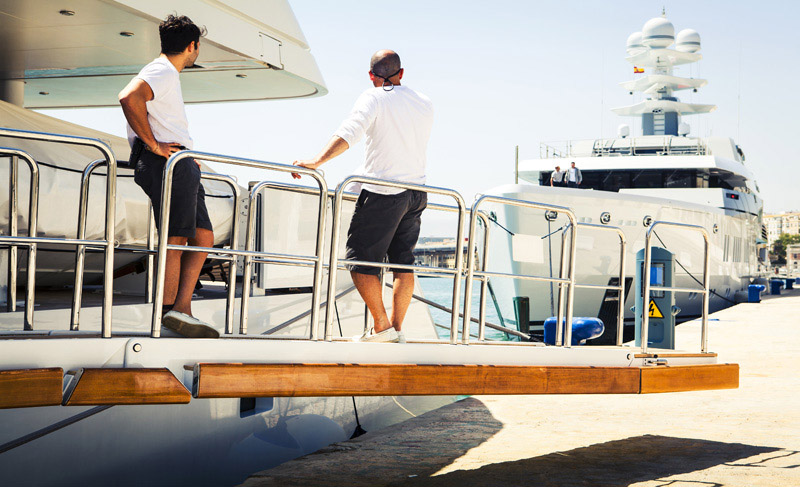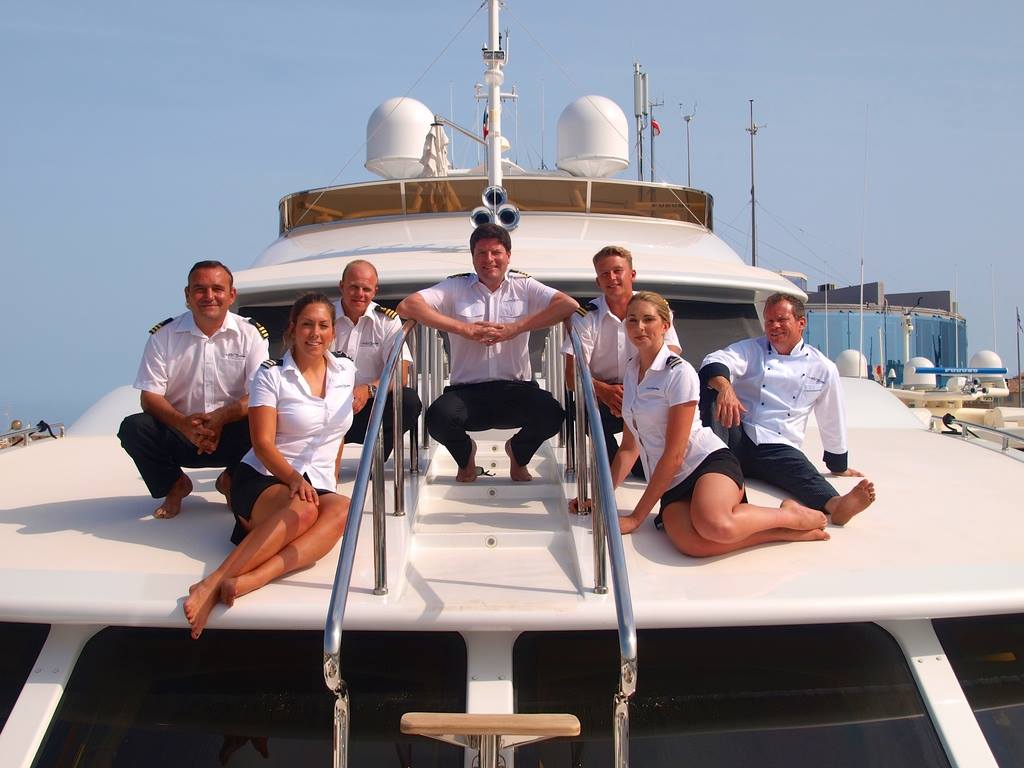Working aboard a superyacht has many benefits, but in case you have never been involved with the yacht world, getting that job can be difficult. Apart from the incredible pay, working on a superyacht gets you to travel and stay in some of the amazing places in the world. We made a list of a few useful tips on how to get your job on a superyacht. Take a look.
Is An Experience Some Of A Kind Required?
Different job positions on a superyacht require different skills, of course. Good hospitality experience, preferably 5-star experience within a service role, will help you when applying for a job of a yacht stewardess. If you want to become a deckhand, practical skills, painting, sanding, varnishing, diving and water sports experience will help your CV a lot. Fine dining or 5-star restaurant experience when applying for a superyacht chef is highly valued.

Source:yachting-pages.com
Required Qualities
To be able to work aboard a superyacht and be able to keep up with the extremely active role on board, you need to have certain characteristics, including being well presented, being a hard worker, enjoying taking care of appearance, and being fit and healthy.
Required Qualifications
An STCW (Standards of Training, Certification, and Watchkeeping for Seafarers) Certificate is required for all members of yacht staff. A 5-day course which costs approximately £800 – £1000 will get you this qualification. An ENG1 Certificate from your local GP, seafarer medical fitness certificate, is also needed. This one is free. A Powerboat Level 2 certificate is required for deckhand positions, while a yacht chef job is based on experience, not qualifications.

Source:certifiedtraining.co.za
Writing A Yacht CV
A good CV is one of the best ways to let people know about your skills and experience for any job. So here is how to write a good yacht CV and to make a great first impression on yacht recruiters:
• Keeps thing short and concise on your CV
• A picture is the first thing yacht recruiters will look for, so make sure your CV has one.
• Don’t write a long CV, keeping it to within two pages is just enough.
What To Do Next?
A yacht hub, e.g. Majorca, Antibes, Fort Lauderdale, and NETWORK, is your next stop. Many crew houses (similar to a hostel) are run by experienced former yacht crew who will be able to help you with things you need, including contacts, advice on your CV, learning to make a good impression, and so. Book yourself in to stay there, and be friendly and try to learn about the industry.
Dock Walking
Dock walking is part of handing your CVs down the docks and marinas, with potential chance to meet the crews and captains, which could get you a job aboard a superyacht. Here is what you need to know about that:
• Make sure you are dressed ready to work.
• Sun lotion is required, just like simple make-up and hair.
• You will probably be there for a whole day, so wear something comfortable.
• Do not skateboard to the docks.
• Bring a lot of printed CVs.
• Arrive around 8 am.
• Approach a boat alone, because bringing your friends with you is bringing direct competition.
• Try to politely catch the attention of someone abroad, instead of ringing a boat’s buzzer.
• In case a boat has a tray for CVs, leave yours there.
• Dock walking later on in the day might be good because people are probably less busy then.
• Be polite.
• Be patient and don’t give up.
• The yachting industry is hard to get into, so be prepared for rejection, but never give up, because gaining good experience in the industry will help you with your career on the seas.

Source:experientiallearning.org
Day Work
Learn as much as you can, and make sure you always listen to instructions, because your little mistake could cost the boat a lot. If you make the right impression, your first day-work could become a seasonal or permanent position, so be wise and good luck.